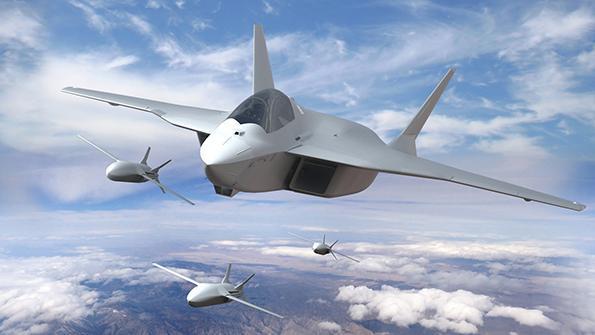Here’s how France, Germany and Spain will get the FCAS off the ground

Paris, Berlin and Madrid have reached an agreement on starting the next stage of development of the FCAS project. Airbus confirms: "the negotiations between industries and governments have been successful"
The Future Combat Air System (FCAS/SCAF), the Franco-German-Spanish program for the sixth generation fighter to replace the French Rafale and the German and Spanish Eurofighters, is (finally) taking off.
An agreement has been reached on the costs of a European military aircraft project after nearly a year of discussions between Dassault and Airbus, reports Radiocor .
“After intense negotiations, an agreement between the industrial parties has been reached on the next phase of the programme” Scaf (Combat Air System of the Future), the German Defense Ministry announced on November 18. “The political agreement on the Scaf program is a great step forward – especially in the current international context – and an important sign of the excellent cooperation between France, Germany and Spain', commented the French presidency, underlining that “France takes the role of project leader.
"We can confirm that the negotiations between industries and governments on the next phase of the Scaf project have been successful, which represents a step forward for this European defense flagship project" indicated Airbus, specifying that "now, some formal steps must be completed in their respective countries to allow for a quick signing of the contract that we will have to respect”.
All the details.
FRANCE AND GERMANY READY TO MOVE TO THE NEXT PHASE OF THE FCAS PROGRAM
France and Germany are ready to move to the next phase of their next-generation fighter jet project. The two countries and two of the main companies involved, Airbus and Dassault Aviation, have formally agreed to move to a crucial phase of the FCAS project during which a demonstration jet will be built.
THE FUNDS ALLOCATED
For this next phase, called "1b", approximately 3.8 billion euros had previously been allocated and the deadline was set for the end of last year. But the talks stalled over disagreements over the sharing of intellectual property between the companies, how the work would be divided up and the specifics of the jet.
Further complicating matters were recent tensions between France and Germany, which exploded into the open in October when Paris and Berlin postponed a joint meeting of the two governments.
THE SCAF/FCAS PROJECT
Launched by France and Germany in 2017, the joint defense project SCAF was joined by Spain in 2019. Its principle is to develop a series of interconnected weapon systems. At the heart of this system of systems, a new generation combat aircraft will interact with drones and be able to mobilize multiple air, naval, land or space capabilities, thanks to Artificial Intelligence and a combat cloud.
Estimates of its overall cost range from €100 billion to a recent report by the Frankfurter Allgemeine Zeitung which puts it at €500 billion. A 2020 French parliamentary report estimated development costs for 2030 at €8 billion, but cited forecasts from outside analysts as high as €80 billion.
THE INDUSTRIES INVOLVED
At this stage, the main players involved are Airbus, Dassault Aviation, FCMS, Indra, ITP, MBDA, MTU, Safran, Satnus and Thales.
STALLS THAT HAVE PENALZED THE FCAS PROGRAM
The demonstration part of the FCAS program is scheduled for 2027, with the entire "system of systems" to be deployed around 2040. Airbus and the French Dassault have been collaborating on the FCAS project for three years. However, the two industrial partners had not signed the contracts due to the lack of an agreement on the division of tasks between the French manufacturer Dassault Aviation and its main partner, Airbus.
So much so that at the beginning of June, Éric Trappier the CEO of Dassault (the French aeronautical company which leads the FCAS program together with Airbus and Indra) stated that the decade of 2040 set for the New Generation Fighter to be operational is now unattainable due to the substantial stasis in which the program finds itself. Therefore, according to Trappier, 2050 would be a more realistic goal.
THE COMPETITION WITH THE TEMPEST
But this delay, according to the Financial Times , could disadvantage FCAS in the race against the rival project, Tempest, developed by the United Kingdom and Italy with Bae Systems as team leader with Rolls, Royce, MBDA UK and Leonardo UK. Meanwhile, talks continue with Japan on whether to supplement its FX fighter jet program with the Tempest.
This is a machine translation from Italian language of a post published on Start Magazine at the URL https://www.startmag.it/smartcity/ecco-come-francia-germania-e-spagna-faranno-decollare-il-fcas/ on Mon, 21 Nov 2022 05:48:24 +0000.
